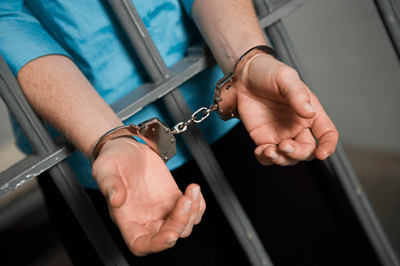Author: myadmin
-

What is Conspiracy Under California Law?
In California, conspiracy laws are outlined under California 182 PC. The law considers conspiracy a scenario where one or a group of people agree to engage in a crime. The crime is charged as either a misdemeanor or felony based on your criminal record and the facts surrounding the case. Before you face charges for…
-

What Happens When you drive with a Suspended License after a DUI
Driver’s license suspension is one of the most life-changing consequences accompanying a conviction for driving under the influence in California. The license suspension process is lengthy, and seeking a restricted license to drive to school or work is expensive, making it impossible for some DUI defendants. When you face a driver’s license suspension, it can…
-

What is Misdemeanor Probation
If you face criminal charges in Van Nuys, CA, the judge could send you on probation in place or together with a jail/prison sentence. The judge’s decision is guided by the details of your case and your criminal history. For instance, you could receive misdemeanor probation on your conviction, whereby you are released back into…
-

Can Felony Cases Be Expunged in California
Under California law, offenses fall under three main categories. Felonies, misdemeanor, and infractions. A felony is an offense punishable with imprisonment in the state prison, death, or any other punishment imposed by the law. A felony offense could also be punishable by imprisonment in county jail, but this will depend on the facts of the…
-

Why Some Criminal Cases Go To Trial And What You Should Know
In most instances, many criminal charges don’t go to trial because your attorney advises you as the defendant to take a plea bargain. But in some cases, the criminal lawyer might advise you not to accept a plea bargain but instead, go to trial. Many factors influence the decision to go to trial or agree to a…
-

What Makes a Theft Crime a Felony
California categorizes different kinds of theft crimes based on severity, while the criminal statutes punish these crimes based on whether the offense is a felony or misdemeanor. For felonies, the prosecutor’s decision is dependent on the property or services’ value and the nature of the crime. Sometimes, felony theft is called grand theft, but the…
-

Factors that Make a Drug Crime a Felony
Under California law, a drug crime can be charged as a misdemeanor or felony, depending on the circumstances of the case. The prosecutor considers several factors when determining whether to charge a drug crime as a felony or misdemeanor. A felony conviction is likely to lead to a prison sentence that could affect your life…
-

Do all Criminal Cases go to Trial?
Surprisingly, not all criminal cases reach trial. Prosecutors might decide to dismiss some charges, especially when there is no or inadequate evidence to prosecute you. At times, the prosecution might decide to refrain from filing a charge at the preliminary hearing Some defendants also escape trial through pretrial motions like a motion to suppress. So,…
-

What to Look for In a Defense Attorney
It is cumbersome and complicated to navigate the California criminal justice system, especially when you are accused of committing a crime. If you don’t have law knowledge, you may not know the steps you need to represent yourself in court. Seeking legal guidance is a crucial step when dealing with the justice system. Having legal…
-

What to Do When You Are Pulled Over for a DUI
As you know, law enforcement officers are strict on cases related to driving under the influence (DUI) because it is the leading cause of most fatal road accidents. Therefore, when law enforcement officers point out your car to pull over at a DUI checkpoint, you should know what to do to preserve your legal rights…